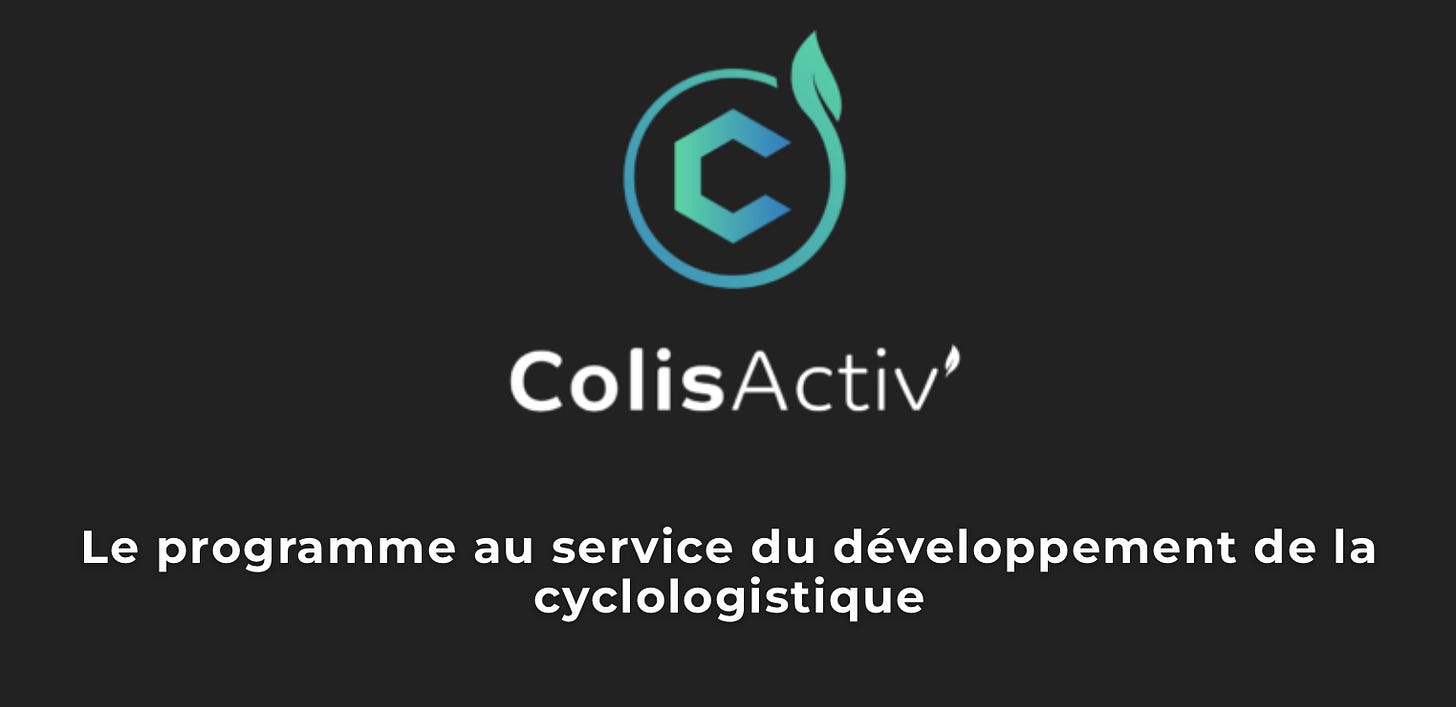Let's make it different, and change some rules
Welcome to "nouveau monde", a four-handed newsletter to better understand how to make the world better through the lens of retail. This is #55. It's still going, Mum.
Thanks for reading Nouveau Monde! Subscribe for free to receive new posts and support our work.
Le menu du jour at nouveau monde is about some eco-brand and last-mile delivery.
Today's newsletter is 914 words, a 5-minutes read.
Read, like, share, subscribe :-)
Do you buy Pangaia’s stuff?
by Phil
I found a remarkable 2022 report released by the management consulting firm Alix Partners in collaboration with Sourcing Journal (or vice versa) called “Fashion in Focus” New Norms and Paradigm Shifts”
Pangaia is a a materials science company at the intersection of fashion, nature and science founded in 2018, having a big moment on social media during 2020 lock-down. Pangaia is backed by the likes of Pharrell Williams, for example, who was the first-ever celebrity seen wearing one of their hoodies back in the days. Their “About us” section is worth reading to understand deeper the innovation and disruption they work on.
“The pandemic and the ensuing supply chain issues shined a spotlight on the people behind the seams, bringing wages and worker conditions to the forefront. Materials science and apparel company Pangaia turned its ESG attention to wages and livelihoods as a key focus for developing timelines around “people” targets. “We will be developing a living wage and living income roadmap in 2022 that will have our milestones and objectives for the next 10 years,” said the Pangaia leadership team.
Spelling Out a Zero-Tolerance Policy
To make sure suppliers understand and abide by the company’s commitment, Pangaia introduced a Vendor Manual in 2021 that includes key policies, guidance, and instructions and processes vendors must follow to be onboarded, as well as Pangaia’s Code of Conduct based on internationally agreed principles in the UN Charters, International Labour Organization’s Core Conventions, and the ETI Base Code. Pangaia is very clear about its “zero-tolerance approach” to certain issues, including modern slavery of any form (including forced or bonded labor), child labor, abusive harassment, the risk to life or limb, the non-payment or payment under the legal minimum of wages, extreme environmental degradation, and bribery or corruption.
Training to Preempt Problems
“While we are not naive to these practices existing in the fashion industry, we believe in having a strong stance that we shall not tolerate this type of exploitation if uncovered in our supply chain,” stated the company. “We are developing tailored escalation and remediation processes and will be conducting Pangaia-wide training on these topics to ensure our teams are well-equipped to adequately respond to such violations.”
Pangaia also stepped up auditing. Introduced in 2021, all Pangaia Tier 1 (direct supplier) production sites must have third-party social audits annually to ensure ethical trading and fair labor standards are met, as outlined in the Code of Conduct. So far, the company has reportedly received third-party audits for 63 percent of such sites, and is working towards having 100 percent coverage of audits.
Preference is given to suppliers who are on a similar journey of monitoring social and environment impact areas to heighten awareness and be a source for change.”
Should we tax last-mile delivery ?
by Anthony
That is the question asked by Ignasi Ragas Prat, Economist specialized in Transport and Urban Economics in a recent article in the Autonomy newsletter.
What is his point ?
Today, we as consumers usually pay the same price for at home delivery, click and collect or pick-up point collect. And very often, it’s simply free. Which is, you know it, not the real price of delivery.
Of course, it costs a lot more to deliver goods at home, as you have to bike extra miles to ride, more traffic, more gas, more time, more missed deliveries…
And if it takes time and gas, it emits more CO2 than if you gather deliveries in a locker or a pickup point. Even if you take into account the fact that in that case customers have to do the last mile by themselves, often emitting extra CO2. But, we’ve already talked about that here.
Let’s go back to Ignasi… His point is that home delivery has an extra cost for the community : more vehicles on the road, more pollution, more traffic, more infrastructure… And that this cost is never pais by the customer himself : even if he pays an extra cost, to goes to the delivery company, not to the society.
Today, we have ways to reduce the impact of last mile deliveries : cargo-bike. Low carbon impact, low impact on traffic and on infrastructure.
But, as of today, cargo-bike delivery still is too small, not enough organized, inducing an extra cost. Who is - really - ready to pay more to make a benefit for the society ? In times of great rise of cost of living. Yep, some people are able to do so but it’s a tiny fraction of the population.
So, Ignasi proposes to setup a tax on deliveries to help decarbonized solutions grow and structure themselves, to let them become cost effective solutions. Like tourist taxes collected by hotels then redistributed to public authorities that can help the low carbon industry rise. In France, we have that kind of program called ColisActiv which gives a bonus to each delivery made by bike.
Take from the polluters to give back to the low emitters, the new Robin Hood ?
Bonus track by Anthony
You can access the full nouveau monde playlist here on Spotify.
Thanks for reading Nouveau Monde! Subscribe for free to receive new posts and support our work.








